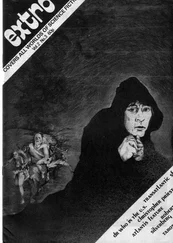Christopher Evans - The Rites of Winter
Здесь есть возможность читать онлайн «Christopher Evans - The Rites of Winter» весь текст электронной книги совершенно бесплатно (целиком полную версию без сокращений). В некоторых случаях можно слушать аудио, скачать через торрент в формате fb2 и присутствует краткое содержание. Год выпуска: 1997, Жанр: Фэнтези, short_story, на английском языке. Описание произведения, (предисловие) а так же отзывы посетителей доступны на портале библиотеки ЛибКат.
- Название:The Rites of Winter
- Автор:
- Жанр:
- Год:1997
- ISBN:нет данных
- Рейтинг книги:3 / 5. Голосов: 1
-
Избранное:Добавить в избранное
- Отзывы:
-
Ваша оценка:
- 60
- 1
- 2
- 3
- 4
- 5
The Rites of Winter: краткое содержание, описание и аннотация
Предлагаем к чтению аннотацию, описание, краткое содержание или предисловие (зависит от того, что написал сам автор книги «The Rites of Winter»). Если вы не нашли необходимую информацию о книге — напишите в комментариях, мы постараемся отыскать её.
This story first appeared in
edited by Maxim Jakubowski (Unwin Paperbacks, 1983).
The Rites of Winter — читать онлайн бесплатно полную книгу (весь текст) целиком
Ниже представлен текст книги, разбитый по страницам. Система сохранения места последней прочитанной страницы, позволяет с удобством читать онлайн бесплатно книгу «The Rites of Winter», без необходимости каждый раз заново искать на чём Вы остановились. Поставьте закладку, и сможете в любой момент перейти на страницу, на которой закончили чтение.
Интервал:
Закладка:
Christopher Evans
THE RITES OF WINTER
‘And fire and ice within me fight Beneath the suffocating night.’
A. E. HousmanThere were heavy snows that November, and by the turn of the year Stella’s supplies of fuel were running low. She was forced to collect brushwood from the countryside surrounding the village, and celebrated her twenty-second birthday with mild frostbite of the hands. She kept a fire burning in the main room throughout the day, banking it up at night so that a residual warmth and even an ember remained when she rose the following morning. It was just as well that the inn was empty of guests and she did not have to provide extra fires; it would be difficult enough to survive the winter as it was.
The bleak, bitter weather reflected her inner state of mind. Her husband, Thomas, had died that autumn, a withered, exhausted man who looked twice his thirty-six years. He had expired in her arms without a word, as if he was glad to give up the ghost of his life. Their last guest of the season, a woman called Marguerite, had left the previous day. With her had gone Thomas’s last hope of survival. Marguerite: pale and blonde, with a smile that enchanted and blue eyes as deep and ancient as an ocean; she had stolen Thomas away, bewitched him then sucked the life from him. The doctor who had come reluctantly from the village had told her that a wasting disease had killed him. Stella knew better, for only weeks before her husband had been a vigorous man in the prime of his life and no disease could act so quickly. But she said nothing, aware that the villagers had never liked her or her husband. The inn lay on the outskirts of the village, but it might as well have been on the moon for all the contact they had had with it. When she and Thomas had taken over the inn two years before, the previous owner had warned them that the villagers mistrusted anyone who sheltered travellers bound to or from the city. They believed the city to be a source of evil; its inhabitants possessed demonic powers, they claimed, and could conjure spirits from shadows, invade the minds of others, turn their enemies to ash with their gaze, and much more.
She and Thomas had dismissed these stories as superstition born of drudgery; they had never visited the city, but came from a town in the west where all shades of opinion were tolerated but none blindly accepted. Now Stella regretted their dismissiveness; Marguerite was no ordinary woman but a succubus who thrived by draining the lives of those she seduced.
The doctor had departed saying that he would send someone from the village to bury Thomas. But that night the temperature had dropped sharply and there were heavy snowstorms. Thomas was lying in the wine cellar where she had found him dying. The tiny window high in its wall had blown open during the night, and the next morning his body was covered with a layer of snow. Stella bolted the window but did not disturb the body; winter had arrived, the earth would soon be frozen, and there would be no burial for her husband until spring.
In the immediate aftermath of his death, Stella wrote a letter to the authorities in the city, telling them what had happened and demanding that Marguerite be tracked down and dispatched as a witch. She trudged through two miles of knee-high snow to post the letter, but on her return had immediately realised the futility of the gesture. Even assuming that the authorities believed her story, she had no evidence that they would act on it; indeed, if such creatures as Marguerite were commonplace in the city, perhaps these very authorities might be numbered among them and would seek to protect their own kind. There was also a more obvious practical difficulty: if the road to the city was impassable with snow, postal deliveries would be suspended until the weather improved.
She spent the dark, chill months huddled around the fire, feeling strangely secure in her solitude. She hardened her mind against thoughts of her dead husband; if she became restless she would wash linen, iron curtains or take a brush to corners of the inn that had not been swept in years. Some nights she would wake to the darkness and the keen wind outside with the fleeting memory of some disturbing dream which faded even as she tried to snatch at it. Then she would remember how Marguerite had mesmerised Thomas from the moment he saw her and had sapped everything vital from him before vanishing.
One morning in March Stella awoke to find the air milder and the frost flowers vanished from her window. The ribbon of road which led north to the city was visible in patches, and snow fell from tree branches. In recent years the weather had become violently capricious; as quickly as winter had come, it had departed. Soon travellers en route to the city would start arriving from the south.
She removed the caged hooded crow from its winter quarters in a south-facing room and set it on the tall pedestal outside the inn; the bird had been inherited from the previous owner and gave the inn its name. The placing of the crow outside the inn always symbolised the start of a new season, and although she was aware that her responsibilities would be heavy without Thomas, she was determined to carry on alone.
She spent the next few days spring-cleaning the guest rooms. Then, one morning, she was drawn to the window by the fractious cries of the crow and saw a stranger chasing away a small boy who had evidently been throwing snowballs at the bird. When the boy was gone, the stranger turned towards the inn, his long cloak damp at its edges from the melting snow. He was a good-looking, bearded man little older than herself, with dark hair and brown eyes. He gave his name as Simon and handed her a silver coin. This was enough to pay for one month’s board. Most guests usually stayed no more than a few days, but the coin was offered without expectation of change.
“Have you travelled far?” she asked him.
He gave a thin smile and a hint of a nod. “Far enough.”
She handed him the key to the guest room next to her own; the fire downstairs kept both rooms warmer than the rest. Later, when she had brought him some cheese and cold pork, she found that the door to his room was locked.
“Leave it outside,” he called to her.
He stayed in his room all day, and at dinner she left a bowl of thick vegetable soup outside his door. Late that evening, while she was sitting beside the fire darning a skirt, he entered the room.
She nodded to him and he seated himself in the rocking chair opposite her. It was where her husband had always sat in the evenings, drinking wine and regaling their guests with fictitious stories of his exploits as a youth. Simon produced a white clay pipe and a small knife with which he scraped the dottle from the bowl. He kept his tobacco in a leather pouch attached to his belt; its scent was more aromatic than that to which she was accustomed.
Intent on her darning, she asked, “Are you bound for the city?” Curlicues of smoke shrouded his head. “Not at present. Do you live here alone?”
“Yes. My husband died last autumn.”
He made no reply to this. Stella snipped the woollen thread and inspected the patch. “He’s lying in the cellar. The ground froze before he could be buried.”
Logs collapsed in the fireplace with a cascade of sparks which were sucked up the dark chimney.
“Are you travelling on business?”
“Of a sort.” He began to rock gently in the chair. “It must be hard to be here alone.”
Stella rose, laying the skirt over the back of a chair. “The inn has been empty all winter. My only concern has been to keep myself fed and warm.” As if to emphasise this she knelt and added more logs to the fire. But it was not entirely true. She had been lonely.
Читать дальшеИнтервал:
Закладка:
Похожие книги на «The Rites of Winter»
Представляем Вашему вниманию похожие книги на «The Rites of Winter» списком для выбора. Мы отобрали схожую по названию и смыслу литературу в надежде предоставить читателям больше вариантов отыскать новые, интересные, ещё непрочитанные произведения.
Обсуждение, отзывы о книге «The Rites of Winter» и просто собственные мнения читателей. Оставьте ваши комментарии, напишите, что Вы думаете о произведении, его смысле или главных героях. Укажите что конкретно понравилось, а что нет, и почему Вы так считаете.












